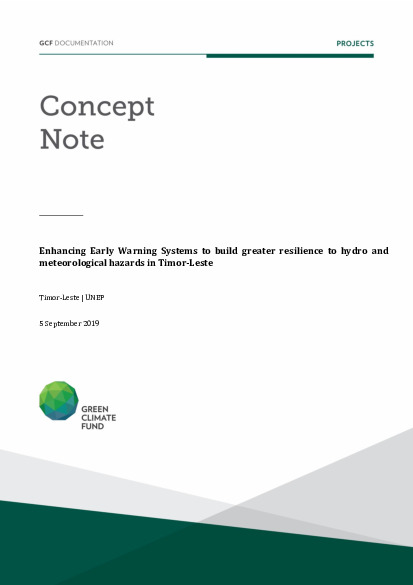Enhancing Early Warning Systems to build greater resilience to hydro and meteorological hazards in Timor-Leste

Enhancing Early Warning Systems to build greater resilience to hydro and meteorological hazards in Timor-Leste
As a Least Developed Country (LDC) and Small Islands Developing State (SIDS) Timor-Leste is highly vulnerable to the effects of climate change and considered to be one of the top 10 countries in the world most at risk to natural disasters. Climate-related hazards such as landslides, flooding and droughts impact the development of Timor- Leste through the disruption of the transportation links, destruction of private houses and public infrastructure including health services centres and increases in food insecurity that further induce negative impacts on the environment and biodiversity. This project will address the urgent need for a comprehensive multi-hazard early warning system (MHEWS) for increasing the resilience of the most vulnerable people and communities of Timor-Leste. Amongst others, the project will establish and improve observation and monitoring infrastructure, impact-based forecasting, accurate and timely warnings to vulnerable communities in order to reduce climate risks. In addition, the project will put in place a strengthened and sustainable framework and business model for national climate services. At the request of the GCF Nationally Designated Authority (NDA) of Timor-Leste, the UN Environment Programme (UNEP) will serve as the accredited entity for the project. The AE will work with a range of partners and executing entities, including Government Entities (namely the Ministry of Development and Institutional Reform), FAO and WMO.